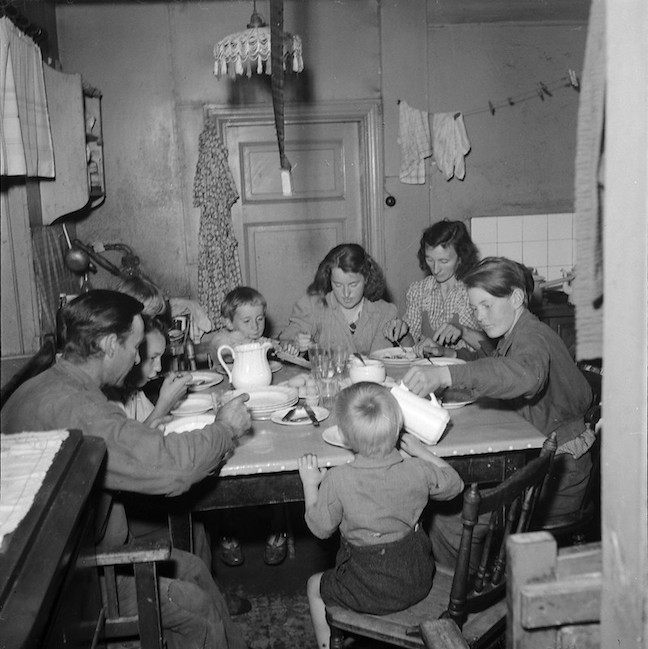A Harris survey in 2016 found that 87 percent of Americans sit down to a family supper at least once a week, while five percent report never doing so. By the time I was a teenager, my family was so fractured that we were in that five percent. Our failure to eat meals together was more symptom than cause, and who knows, maybe sitting across from one another with sharp utensils in our hands would have been a bad thing. But we definitely lost something by failing to eat together as a family.

Looking a little more closely at the statistics, we find that 72 percent of American fathers with young children report having meals with their children every night. In households with older children, however, the average drops to 64 percent. As any parent of teenagers can attest, activities and the allure of friends make getting everyone together for a meal tough to accomplish.
Why do we even care about shared meals? Because humans of all races and creeds have sensed, since we started spearing mastodon meat with sticks and holding it over a fire, that sharing meals cultivates good things inside us. It builds trust and intimacy. You’re vulnerable when you’re putting food in your mouth. You’re physically acknowledging your frailty and humanity. And you’re doing something—unless you’re subject to the ministrations of an absolutely terrible cook—that is deeply pleasing.
All of these are conditions that open the door to honest, simple, open-hearted conversation. You don’t have to get deeply philosophical or emotional. In fact maybe you shouldn’t. Maybe this is a time to just be present, and to enjoy the presence of your family.
I think the world could use a bit more of that. Don’t you?
And here’s the disturbing fact underlying the seemingly positive statistics I mentioned above. That Harris survey I cited also reveals that 37 percent of Americans eat their suppers in front of the television, while 27 percent of families with children do so.

Fathers, that’s a goddamned shame. And shame on you if you’re one of the men participating in this farce. Cut it out.
Or at least take the first step toward cutting it out. Declare one family meal a week to be completely free of all digital screens. And listen, I grew up in a home where the TV was always on. I know how hard it can be to turn the damn thing off. It took me years, once I was living on my own, to detox from what I learned as a child.
But part of becoming the father your children need is cleansing yourself from poisons, right? And in the grand scheme of things, this one is relatively easy to deal with. So man up and deal with it.
And if you’re one of the fathers who’s already got a good score in this category, keep it up. Maybe think about inviting other families into your home for meals. Model this for other men, and for their children. Something I remember fondly from my childhood was that, even though we were a dysfunctional mess, we would go to my grandmother’s for Sunday lunch (in the South we called that “dinner”). And it felt like a holiday. Like something special. I guess it was.
We all have the ability to create that sense of sacredness in our homes, simply by staking out ground around an activity that we have to engage in by biological necessity anyway. Let’s protect our tables, fathers.
Additional Resources
30-Minute Dinners for Big Families. The folks at Taste of Home offer a variety of simple but big recipes that even a non-culinary bonehead like me can cook.
The Importance of Family Mealtime. A brief list of proven benefits of family meals, along with simple recommendations for how to make them work.
Kid Chef Recipes. 480 recipes your kids can help make.
The Supper of the Lamb. Robert Farrar Capon’s classic is part meditation on the value of shared meals, part spiritual memoir, part cookbook.
The Value of Family Meals. A couple recounts how they’ve made their family’s Sunday dinner a 40-year tradition.

